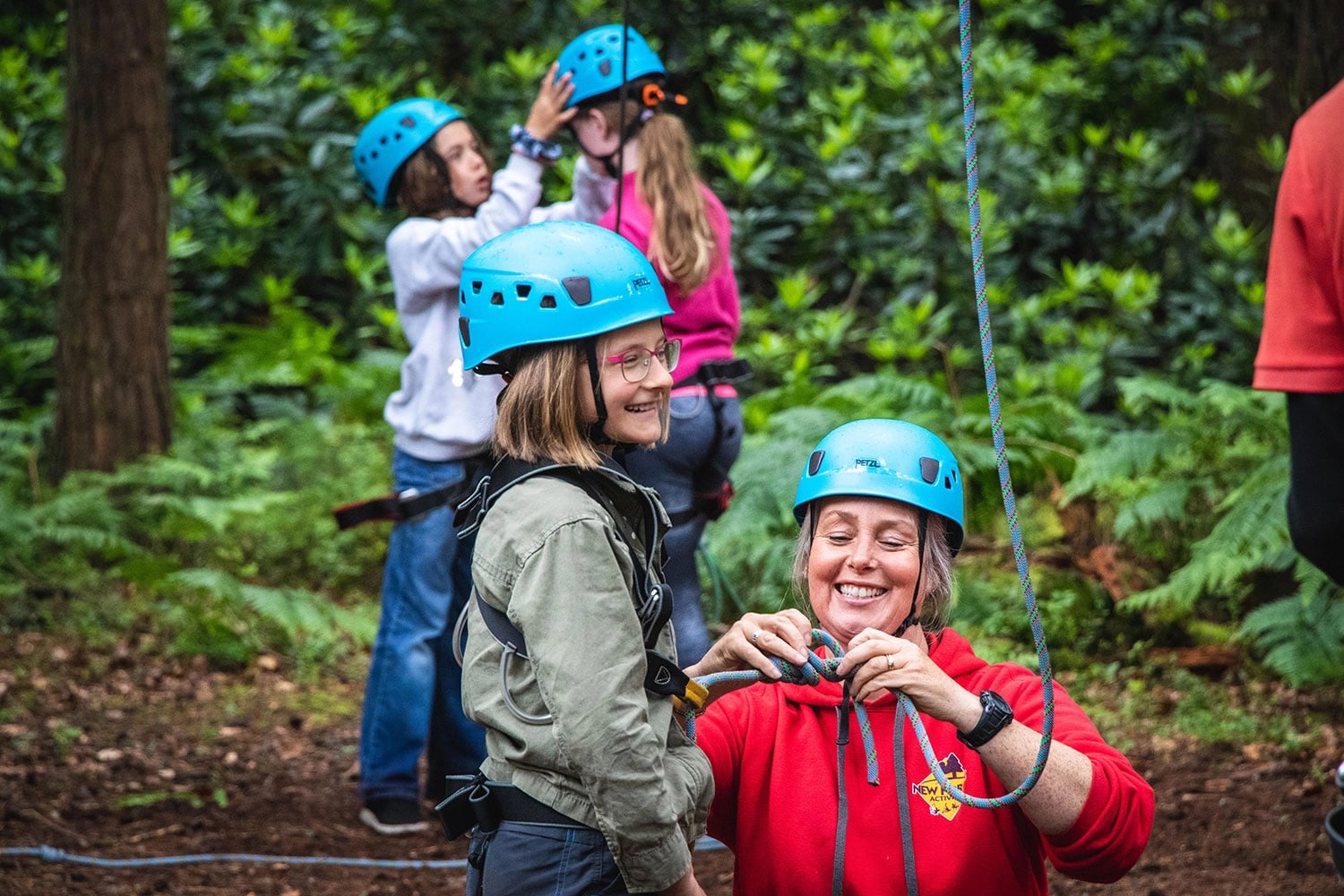Experience Matters When Booking Outdoor School Trips
25 July 2019

The positive effects of schools getting to grips with adventure and nature with outdoor activity providers has been discussed in depth for many years now.
With good reason too, as all the research, statistics, case studies and conclusions rave about how brilliant they are, with tangible short and long term results benefitting pupils, their relationship with teachers and the schools’ exam results.
It would be interesting to know the percentage of teachers who actually enjoy organising and going on these trips? The responsibility usually falls to the teachers, heads of year and educational departments to plan which outdoor activity days are in store for their classes. But it doesn’t have to mean hours of misery and anxiety trying to organise them.
Do many schools go to the same provider year after year just because it’s easier? Is it worth looking around to see what else is out there? There’s plenty of rivalry between UK providers offering what they hope is the optimal timetable of great quality sessions; full of fun and exciting interaction, balanced with school curriculum objectives and cost.
Research is key with so many differentials to choose from. Especially if price is the main driving factor. If being low-cost is imperative, are you better going for a shorter time ensuring 100% student inclusive, quality sessions? Or, stretching time out and possibly weaving teaching modules (entailing additional input from teachers) to eke out a worthwhile programme?
Cost versus the quality of sessions is always a trade-off. Good providers should always tailor sessions to accommodate the needs of students and make certain that the experience of their instructors is appropriate. Choosing a provider that can deliver sessions that are simultaneously challenging are the sessions that have the most impact, and where students and teachers have the best time. Some companies promise the earth offering activity sessions lasting a day or two where students are promised rock climbing, archery, kayaking, raft building, high ropes, orienteering and bushcraft. In some cases, that can be a class of 30 children with a couple of inexperienced instructors overseeing queues of students hanging about, waiting with eye-rolling boredom for their 10-minute turn.
Sam Sutton, Director of New Forest Activities says “We offer school trip organisers the option to come along for taster sessions, meet some of the instructors and look over the site and our equipment so they can get a real feel of what we provide. We ask teachers to take time to talk to us about the potential to tweak sessions to fulfil the trips objectives and curriculum tick points. We create sessions where the students get to learn how to take risks responsibly, see the value of perseverance and enjoy their time learning outside of the classroom.

"It’s our job to support teachers planning the trip to make it as easy as possible and integrate the curriculum by creating links between the classroom and our sessions. Teachers feed back to us that apart from the buzz back in the classroom, their pupils are more interested, focussed, attentive, interactive and creative in their thinking. It’s also worth checking out outdoor activity provider licenses and accreditations. For instance; we are fully licenced by Hampshire County Council, and the Adventure Activities Licensing Authority (AALA) as well as the ‘Quality Badge’ from the Council of Learning Outside the Classroom and the National Outdoor Learning Award so that students can achieve a recognised certificate during their time with us."
"Sessions are usually run as half or full day sessions which are a great option for day trips, or within a longer residential itinerary. Outdoor residential trips are an exciting introduction to building bonds with peers whilst learning and testing their independence. Overnight stays should deliver even more impact for students, especially from families who don’t spend a lot of time outdoors. Again it’s about balancing cost with the level of accommodation and luxury. Swanky lodges can cost the earth, but on a residential that’s teaching the delights of immersing students in the great outdoors, camping en masse is a sure-fire introduction to students learning the benefits of being organised, supportive of one another and fostering friendships. Camping for school-age students can if teachers wish, be escapism from technology. No television, no computers and most importantly a chance to put down the mobile phones, for at least some of the time”.
Camping for school-age students can if teachers wish, be escapism from technology. No television, no computers and most importantly a chance to put down the mobile phones, for at least some of the time.
Sam Sutton continues, “One area where teachers can keep costs down is accommodation. We have a campsite for residential groups with the option of fully or partially equipped tents and separate tents with raised beds for teaching staff. This environment offers ‘unplugged’ time away from screens. Pupils continue to engage in conversation into the evening which for some students may be a rare experience. It’s also a good time for pupils to discuss the day’s activities, reflect and set personal goals”.
School residential trips are time intensive to organise, so choose a quality outdoor activity centre with knowledgeable, supportive instructors who will listen, suggest and fine tune your session to exactly what you want, rather than what they provide. Why not take a look at what's on offer at New Forest Activities for your next school trip? Or speak to a member of our team today and let us know what your trip requirements are.
